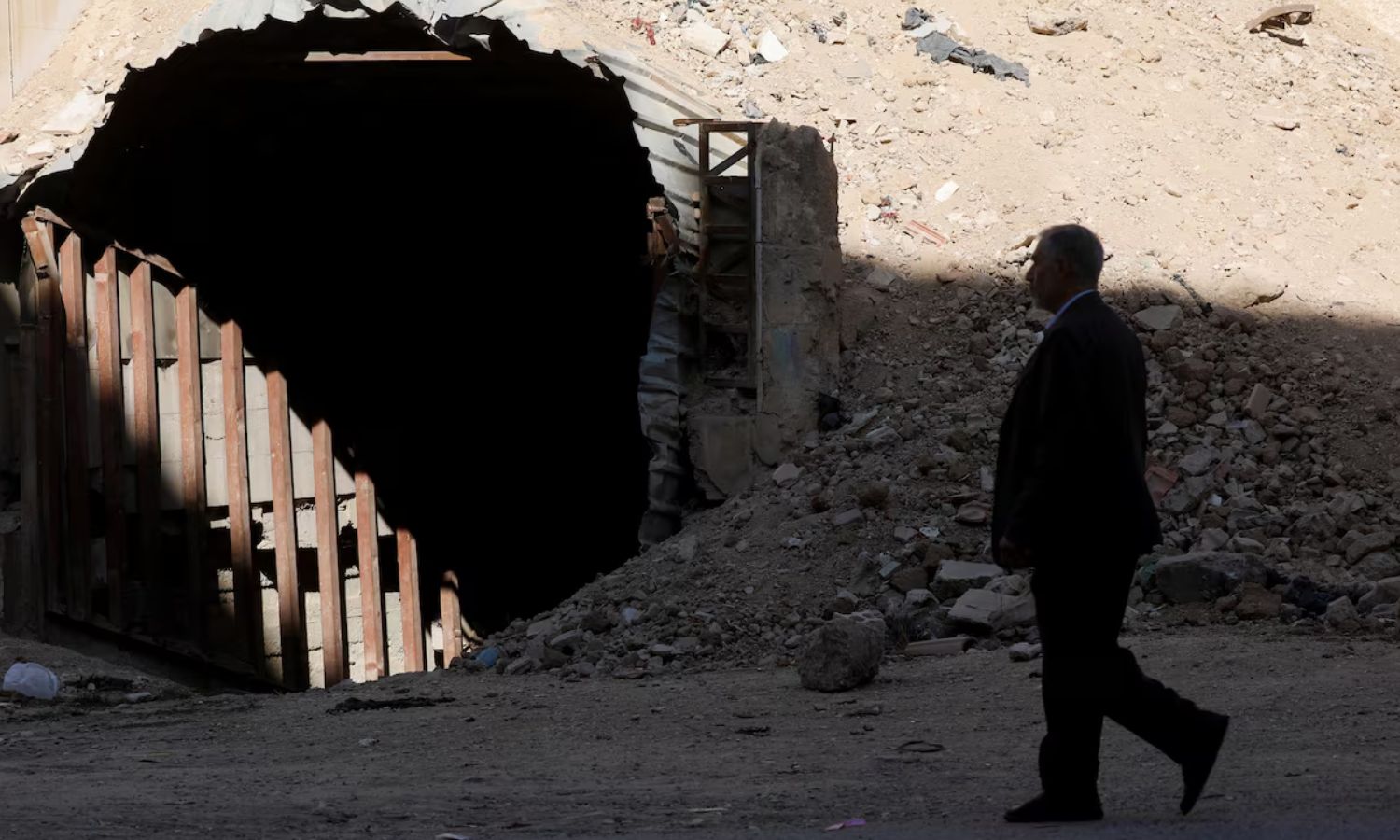



Enab Baladi – Bana Manla
The journey of Syrians seeking refuge outside Syria did not start with the outbreak of the revolution in 2011; rather, it began decades ago when they faced a repressive regime that forced them into exile under threats of death or imprisonment.
Some Syrians chose exile as their only means of survival for decades, as they were compelled to leave their homeland due to the political and security conditions imposed upon them.
At a time when returning to Syria was merely a distant dream, the changes that took place in the country and the fall of the Syrian regime allowed some who had lived in exile for decades to face a Syria different from the one they left.
Researcher and politician Radwan Ziadeh is one of those exiled from his homeland for a long time, who returned to Syria after decades.
“I had no other choice,” Ziadeh summarized his decision to leave Syria in 2007 when he spoke to Enab Baladi.
The security threats Ziadeh received from the head of the State Security branch, Ali Mamlouk, at that time due to his political activities, pushed him to leave Syria.
Ziadeh knew that staying meant imprisonment, so he chose voluntary exile in search of safety.
At that time, returning to Syria was not on his mind, especially after 2020. But with the fall of the regime, he felt that “the dream of Syrians for freedom had finally come true,” which motivated him to return to his homeland, which had changed significantly.
Engineer Ghassan al-Shuqayqi’s journey began in early 1980 when he was forced to leave Syria under the pressure of imprisonment after spending a year in jail in 1978 due to accusations of joining armed organizations opposed to the regime.
After his release, he faced two choices: either take up arms or leave the country, and he chose exile. However, his heart remained attached to Syria, hopeful that “justice will come, even if after a while,” as he told Enab Baladi.
Upon his return, Radwan Ziadeh, a native of Darayya in the countryside of Damascus, described Syria as “a drained state, with institutions barely functioning, but the people have a strong desire to rise again.”
He added that the years under al-Assad’s rule saw no real investment in the human or economic aspects, making the country appear tired, but the capability to rise still exists if the necessary efforts are provided.
As for Ghassan al-Shuqayqi, he was shocked upon his return, finding “massive destruction and broken infrastructure,” whereas he remembered old Syria as a beacon of renaissance and progress.
Nevertheless, he noticed something different in people’s faces; “despite everything, people smile, and there is a glimpse of joy on their faces, and their hopes are high.”
Engineer Hamdi al-Shuqayqi shared his experience with Enab Baladi, which began in 2005, after he was compelled to leave Syria due to the consequences of the events that took place in 1982 in Hama and the subsequent security pursuits of his family.
Hamdi’s father was among the victims of the Hama massacre, which led the family to be pursued by the security forces, forcing them to leave the country in search of safety.
Despite his long suffering in exile, Hamdi remained optimistic about Syria’s future, expressing hope for “the victory of the Syrian people’s revolution,” despite the destruction that has affected the country’s infrastructure.
After more than two decades abroad, Hamdi returned with a large number of Syrians to a Syria that seems different from what it used to be.
The night of the fallen regime’s collapse remains a memory engraved in the minds of every Syrian who longed to see this day.
Ziadeh said, “That night was a dream turned into reality; I didn’t sleep all night watching the news, and finally, I confirmed Assad’s fall.”
This moment was a restoration of hope for the future for him and propelled him to move forward with his decision to return to Syria after years in exile.
As for Ghassan al-Shuqayqi, he summarized his feelings in one sentence, “I saw my country return to its people.”
Although he was joyful about the regime’s fall, he admitted that during his years in exile, he missed the spiritual safety, which for him can only be achieved through the presence of his homeland. He added, “Every person should have spiritual security, and that is the homeland.”
Hamdi al-Shuqayqi described that night as “the return of life to the body,” considering that the fall of the regime was not just a political collapse, but a moment of regaining life and freedom for Syrians after years of oppression.
After their return, Radwan Ziadeh thinks that Syria needs the efforts of all to rebuild the institutions that war has destroyed, noting that with the real desire from people to rise again, it is possible to gradually restore life to this country that has lived through years of devastation.
Ghassan al-Shuqayqi explained that returning Syrians bring with them the experiences they gained during their years in exile, which may contribute to the rebuilding of the country. However, he affirmed that Syria needs to reclaim its sense of dignity and pride, stating, “My feelings towards Syria are always of esteem and honor.”
As for Hamdi al-Shuqayqi, he believes that the hopes of Syrians in building their country are still alive despite the significant challenges, pointing out that change does not come overnight. However, the return of Syrians and their hope in building a new Syria represents a significant step toward the future.”
if you think the article contain wrong information or you have additional details Send Correction